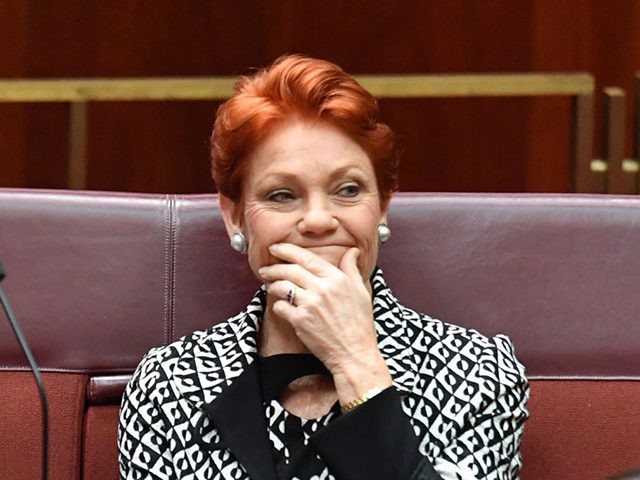Australian lawmakers and businesses called for a boycott of Chinese goods this week after Beijing hiked trade tariffs on a number of Australian products.
A falsified image published by the Chinese Foreign Ministry depicting an Australian soldier beheading an Afghan child also generated outrage among Australians.
Sam Kennard, the CEO of Australian Self Storage company Kennards’, urged Australian businesses to eliminate Chinese suppliers on Wednesday, News.com.au reported.
“The Chinese Communist Government has proven to be difficult to trust,” Kennard told News Corp Australia’s NCA NewsWire.
“They’ve placed tariffs on [Australian] lobster, wine, and barley out of revenge or spite and the risk is, you just don’t know who is next,” he said.
The CEO said his storage business was only a “modest consumer” of Chinese-made goods but that the company was still searching for new, non-Chinese suppliers.
Kennard explained that, while the boxes his company supplies for storage unit tenants are manufactured in Australia, other packing items, such as plastic wrap and padlocks, come from China.
“We only discussed this yesterday and we are looking to see if we can get those padlocks, say from Taiwan, Korea, or Germany,” Kennard revealed.
“Every Australian business should now be reviewing supply contracts. Change and prefer non-Chinese made products where possible. We have made this decision,” Kennard wrote in a Twitter statement on November 30.
Kennard’s call for Australian businesses to cut ties with Chinese suppliers follows shortly after Australian Sen. Pauline Hanson urged the country’s consumers to boycott Chinese-made goods this Christmas shopping season.
The leader of Australia’s right-wing One Nation Party, Hanson on November 30 encouraged her fellow countrymen to leave Chinese-made products “on the shelf.”
“You might think it’s awfully hard; yes, it is hard; I get it,” she said in a Facebook video.
“We all have our part to play in this. Think about it when you buy that furniture, that toy, that food, whatever you buy, have a look where it comes from, and if it’s China, let it sit on the shelf,” the populist leader instructed her followers.
Hanson first proposed a China boycott on November 26 in response to “China’s recent economic attacks against Australia.” Her proposal came on the same day that Beijing announced it would increase tariffs on Australian wine by 200 percent.
In response to China’s recent economic attacks against Australia I have just one thing to say, Merry Christmas China. -PH pic.twitter.com/3PaqBqTHcM
— Pauline Hanson 🇺 (@PaulineHansonOz) November 26, 2020
China’s state-run Global Times labelled Hanson’s call for a China boycott as “arrogant” in an editorial on Tuesday.
“China’s imposition of tariffs on Australian products is rules-based anti-dumping and anti-subsidies measures,” the newspaper claimed.
“Australia could bring China to the World Trade Organization. If China loses, it will accept the result. But the problem is that Australia would not win,” the Global Times argued.
“Given the size of Australia’s economy and Australia’s trade surplus with China, the land down under is way too arrogant when taking boycotts of Chinese products as a weapon against Beijing. By pretending to harm themselves, are these Australian politicians threatening China?” the publication asked.
An Australian economist made a similar argument on Wednesday in an article published by News.com.au.
“If we stopped buying Chinese goods, it would cost China around 0.9 percent of their GDP. No big deal. But if they stopped buying ours, it would cost us around 16 percent of our GDP. A big deal,” the author wrote.
“A big trade war would blow up in Australia’s face. Western Australia would be hit hardest because iron ore exports to China are a huge part of the state’s economy. Queensland would miss coal exports. NSW [New South Wales] would miss tourism. And Victoria would lose out big on education,” the economist explained.
Trade tensions between Australia and China have increased in recent months amid deteriorating diplomatic ties between the two countries. Observers view the fallout largely as a result of Canberra’s public support in April of an independent probe into the true origins of the Chinese coronavirus, which Beijing has been accused of attempting to cover up. Since April, China has imposed retaliatory trade restrictions on a growing number of Australian products. In response, Canberra has increased restrictions on foreign investors in Australia, citing national security concerns. The restrictions are largely considered to target China, traditionally Australia’s top trading partner.
Australia now joins India in demanding a boycott of Chinese-made products. The South Asian giant started its own Boycott China campaign in June following a deadly border clash with China along their Himalayan border.

COMMENTS
Please let us know if you're having issues with commenting.